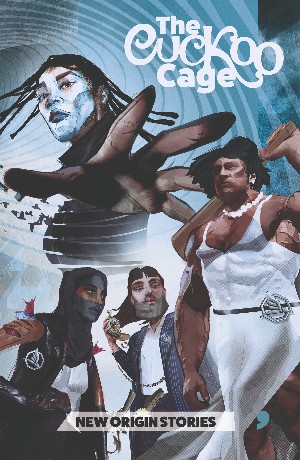
A collection of stories, The Cuckoo Cage, refashions folk heroes of history for present struggles, celebrating humanity’s spirit of resistance, finds Simon Duckett
In these times when superheroes are increasingly concerned with mundane day-to-day human problems (Jessica Jones, Luke Cage) and thriller characters display almost Herculean powers both mental and physical (Jack Reacher), now would appear to be the perfect time for the appearance of this collection of short stories, based on shadowy radical characters from our dim and not so distant past, to be brought right into the present day.
Introducing modern incarnations of shadowy players such as Captain Swing, Nedd Ludd and Jack-a-Lent, the writers attempt to graft these mythical leaders of the toiling poor onto contemporary struggles, struggles which are not so different from those of several centuries ago. So, in one tale, a version of Lady Skimmington appears when a proposal to build on, or ‘develop’, a local park is made by local authorities. In another, Jack-a-Lent helps out statue-topplers by ‘disappearing’ the hated symbols of an oppressive municipal past.
Following each tale is an ‘origin’ story, by various academics, writers and historians, which attempts to trace the inspiration for each hero back through the mists of time, illustrating the longevity of the characters, and the longing for freedom and economic justice that their existence encapsulates.
The tales themselves are based around the numerous instances of outrageous behaviour by the establishment and its cronies that hit the headlines all too frequently: drowning refugees, the neglect of mental illness, and the shutting down of workplaces that are the major local employer. The stories are also about the various forms of possible resistance and which is the most effective.
The tales range from relatively obscure characters from the ancient past (Cassivellaunus in ‘Absence’) to the more easily recognisable (a version of Swampy in ‘Unloved Flowers’). A number of the stories have a historic, almost nostalgic feel, invoking memories of Greenham Common, the Peace Convoy and other attempts at ‘alternative’ lifestyles from a previous era, albeit ones forced by circumstances and a hostile establishment. As such, they can invoke a pessimistic, almost despairing atmosphere with characters forced to the margins of society and having to contemplate the last-ditch forms of action open to them. They therefore focus more on the dispossessed than the more mainstream parts of society, i.e. transport workers, nurses, or education workers.
On the other hand, perhaps the central idea of the stories demands that angle, bearing in mind, as we must, that these are works of fiction rather than an outright manifesto. They serve very well to symbolise the unquenchable spirit of resistance and resilience of people in the harshest of circumstances. These are no dispiriting tales of inevitable defeat and a ‘resistance is useless’ sensibility, but rather they are a celebration, sometimes romantic, of the essence of what it is to be human: a yearning for freedom – peace and justice if you will – as one story puts it, ‘for the ache of it’.
Fund the fightback
We urgently need stronger socialist organisation to push for the widest possible resistance and put the case for change. Please donate generously to this year’s Counterfire appeal and help us meet our £25,000 target as fast as possible.

